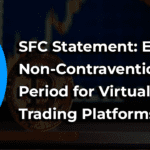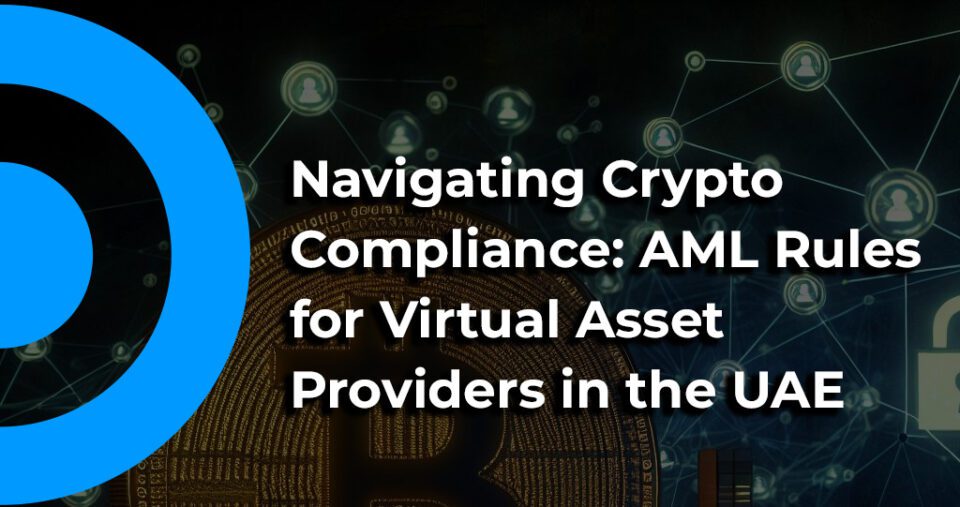
Hong Kong’s Virtual Asset Licensing: SFC to License 11 More Platforms by Year-End
October 22, 2024
SFC Statement: End of Non-Contravention Period for Virtual Asset Trading Platforms
October 24, 2024Hong Kong’s push to become a global digital asset hub is experiencing growing pains as regulatory scrutiny mounts over whether 11 crypto exchanges will secure full licenses by the end of the year. The Securities and Futures Commission (SFC) is inspecting these exchanges, which initially received “deemed-to-be-licensed” status. Recent findings from the SFC have raised concerns about the readiness of these platforms to comply with stringent regulatory requirements, adding to the Crypto Licensing Challenges Hong Kong Web3 and ambitions.
Looking to obtain a Crypto License in Hong Kong? Read more here
Key Takeaways
- 11 Exchanges Under Review: The SFC inspects 11 deemed-to-be-licensed platforms, focusing on protecting client assets and strengthening cybercrime safeguards.
- Licensing Process: Platforms must comply with stringent SFC requirements or risk disqualification, forcing them to restart their applications.
- Major Exchanges Involved: Platforms under scrutiny include global players like Crypto.com, Bullish, and Matrixport HK.
- Regulatory Caution Post-JPEX Scandal: The JPEX scandal, which defrauded over 2,600 investors, has sharpened the SFC’s focus on security, compliance, and investor protection.
- Global Competition: Hong Kong faces competition from crypto-friendly regulations in Singapore and Dubai, yet its strict standards aim to create a safer market.
- Withdrawal of Applications: Since the new licensing regime began, 12 companies, including Huobi HK and Bybit, have withdrawn their applications due to Hong Kong’s requirements.
- Opportunities for Compliant Platforms: Despite challenges, platforms meeting the SFC’s high standards could benefit from Hong Kong’s strategy to be a trusted crypto hub.
Ongoing Inspections and Regulatory Concerns
Since granting provisional approvals to 11 virtual asset platforms in June 2023, the SFC has conducted a series of on-site inspections to assess compliance with Hong Kong’s licensing regime. The inspections revealed some unsatisfactory practices that could jeopardize the future of certain exchanges. According to sources familiar with the situation, some platforms have failed to adequately safeguard client assets, relying heavily on a limited number of executives to oversee custody functions. Others have not implemented robust measures to mitigate cybercrime risks.
The SFC warns that platforms failing to address these deficiencies may lose their deemed-to-be-licensed status. Exchanges failing to comply will either have their applications rejected or will have to restart the licensing process from scratch. This uncertainty casts a shadow over Hong Kong’s ambitious goal to cement itself as a leading crypto hub.
The 11 Exchanges Under Scrutiny
Among the exchanges currently under review are some well-known global players such as Crypto.com, Bullish, and Matrixport HK, alongside regional platforms like HKbitEX and PantherTrade. Despite receiving initial approvals, these platforms must now demonstrate full adherence to the SFC’s requirements, particularly in the areas of client asset protection and know-your-client (KYC) protocols.
While Crypto.com and other exchanges have declined to comment on the ongoing inspections, the SFC has confirmed that these reviews are critical in determining whether applicants are fit to receive full licenses. SFC CEO Julia Leung explained earlier that the agency expects to issue full licenses to successful applicants by the end of 2024, provided they meet all regulatory standards.
Hong Kong’s Cautious Approach to Digital Assets
The licensing process for crypto exchanges in Hong Kong is part of a broader effort to rebuild the city’s reputation as a financial hub. Following political challenges, Hong Kong has struggled to regain its status as a global financial center. While authorities are eager to promote Web3 technologies and digital assets, they have taken a cautious approach to licensing virtual asset platforms, emphasizing investor protection and regulatory oversight.
This cautiousness was further amplified by the JPEX scandal, a major unlicensed crypto platform scam that defrauded over 2,600 investors of a total of HK$1.6 billion (approximately USD $204 million). This scandal has heightened the SFC’s focus on ensuring that licensed exchanges operate with the highest standards of security and compliance, and any platform that fails to meet these standards will be disqualified.
Crypto Licensing Challenges Hong Kong: Web3 Agenda
Push for a regulated digital asset market has not been without Crypto Licensing Challenges Hong Kong. Since the SFC implemented its new licensing regime, 12 companies, including major names like Huobi HK, Bybit, and OKX, have withdrawn their applications. These withdrawals suggest that meeting Hong Kong’s stringent requirements is a significant hurdle, particularly for exchanges that may not have robust compliance structures in place.
Currently, only two exchanges, OSL and HashKey Exchange, hold full licenses and operate under Hong Kong’s regime. Other exchanges that applied before May 2023, when new regulations took effect, continue operations as applications process. Meanwhile, non-applicant exchanges exited the market by the end of May, emphasizing the stakes in meeting Hong Kong’s evolving regulations.
SFC Statement: End of Non-Contravention Period for Virtual Asset Trading Platforms
A Competitive Digital Asset Market
Competition from regions like Singapore and Dubai also influences Hong Kong’s efforts to establish itself as a global digital asset hub. These cities have similarly introduced dedicated regulatory regimes to attract crypto businesses and investments, with Dubai launching its Virtual Asset Regulatory Authority (VARA) and Singapore maintaining a strong presence in the crypto space through the Monetary Authority of Singapore (MAS).
Despite the competition, many view Hong Kong’s regulatory rigor as a potential long-term advantage. By focusing on robust compliance, the city is positioning itself as a safe and secure destination for both investors and crypto businesses, albeit at the cost of some short-term challenges.
Looking Forward: What’s Next for Hong Kong’s Crypto Market?
The SFC’s ongoing inspections leave the future of 11 deemed-to-be-licensed exchanges uncertain. Authorities expect full crypto licensing implementation to drive Hong Kong’s Web3 agenda and secure its role in global digital assets. This strong regulatory commitment, though challenging, shows Hong Kong’s goal of creating a safe, reputable space for virtual assets. Ultimately, this effort increases the city’s appeal to investors and innovators. The SFC’s message for crypto platforms is clear: compliance is essential. Platforms must secure client assets, enforce KYC, and meet top regulatory standards—or risk exclusion from the market.
How PayCompliance Can Help
Navigating Hong Kong’s stringent crypto licensing requirements can be complex and challenging, especially for global players unfamiliar with the region’s regulatory nuances. PayCompliance offers specialized services to help virtual asset platforms meet the SFC’s rigorous standards. Our team of experts provides:
- Comprehensive support throughout the licensing process, from initial application to post-approval compliance.
- Assistance in developing and implementing robust AML and KYC policies to ensure full regulatory adherence.
- Ongoing guidance to help you meet client asset protection requirements and cybersecurity standards, ensuring your platform is fully compliant with SFC expectations.
With PayCompliance by your side, you can confidently navigate Hong Kong’s complex regulatory environment and position your platform for success in one of the world’s most exciting digital asset markets. Contact us today to learn more about how we can support your crypto licensing needs.



